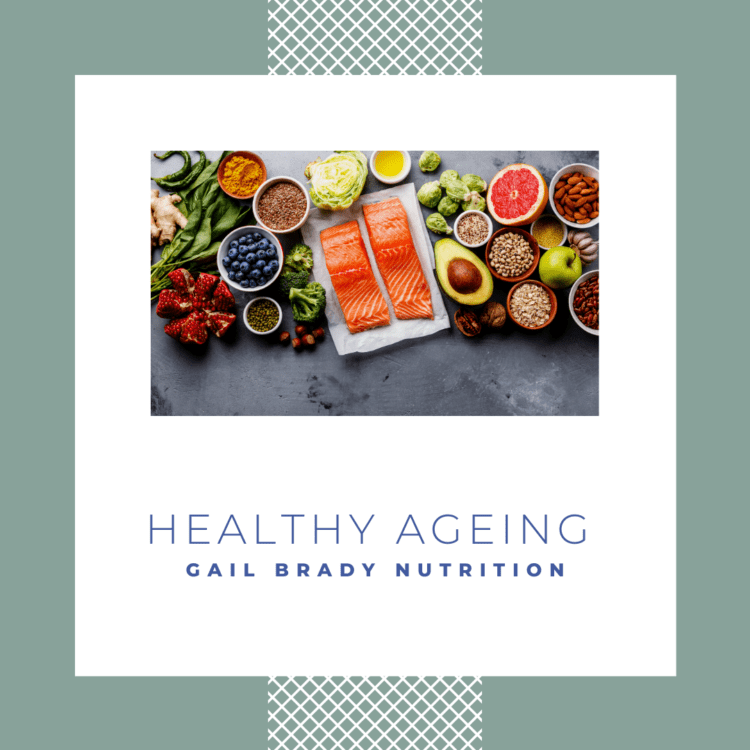Caring about healthy ageing is not about vanity, it is about nourishing and protecting your body so that it can serve you in the best way for as many years as possible.
It is not just about living longer, but about the quality of those years.
Supporting your body with good nutrition and lifestyle practices is something that you have control over and this can make a huge difference to how your body ages.
Nutritionists often talk about anti-inflammatory foods and anti-oxidants, but what do these terms mean?
What is an antioxidant?
Anti-oxidants can protect your body from the damage caused by eating certain foods, environmental toxins and the by-products of our own body’s chemical processes. This damage is called oxidative stress.
This is part of the ageing process. Your body makes some of its own anti-oxidants but these are often not enough for today’s world and the way that we live.
Environmental toxins, nutrient deficiencies, imbalances in the bacteria in your gut, medications, processed foods, sugar, alcohol etc can all increase your anti-oxidant needs.
If you don’t get enough anti-oxidants you may experience symptoms such as low energy and fatigue, muscle pain, brain fog, and accelerated ageing. This happens due to inflammation and your cells becoming damaged.
Over time this can contribute to chronic diseases such as heart disease, dementia, diabetes, obesity and fibromyalgia.
Including anti-inflammatory foods and food rich in antioxidants in your diet could help you to protect your body against the effects of oxidative stress and help to slow down the ageing process.
Apart from potential longer life span and a better quality of life, some of the benefits of the other benefits may include;
- healthy, glowing skin
- a sharper brain
- less vision degeneration
- reduced risk of disease
- better joint health
Foods rich in anti-oxidants
- Berries – Especially blueberries, blackberries, cranberries, strawberries (organic) and goji berries
- Pomegranate
- Green leafy vegetable – especially broccoli and organic kale (conventional kale is heavily sprayed with pesticides)
- Nuts and seeds – especially pecans and pumpkin seeds
- Sweet potatoes
- Carrots
- Artichokes
- Kidney beans
- Dark chocolate
- Herbs and spices – oregano, thyme, parsley, rosemary, coriander, turmeric, cinnamon
Anti-inflammatory foods
- Oily fish – especially wild-caught salmon
- Bone broth – you can find a recipe to make your own here
- Ginger
- Green tea including Matcha
- Avocados
- Olive oil
- Shitake mushrooms
There is a lot of overlap between anti-inflammatory foods and foods rich in anti-oxidants. Eating as many of the above on a daily basis is likely to be beneficial to your health.
Next steps
If you would like to personalise your nutrition plan click on the link here to book a complimentary call.




